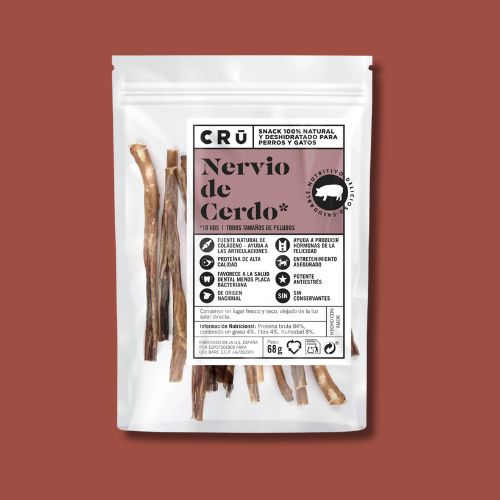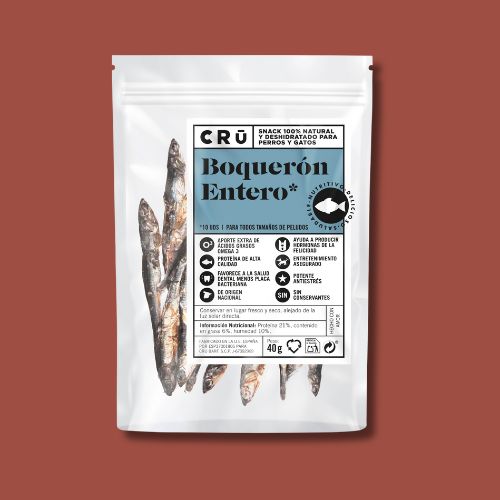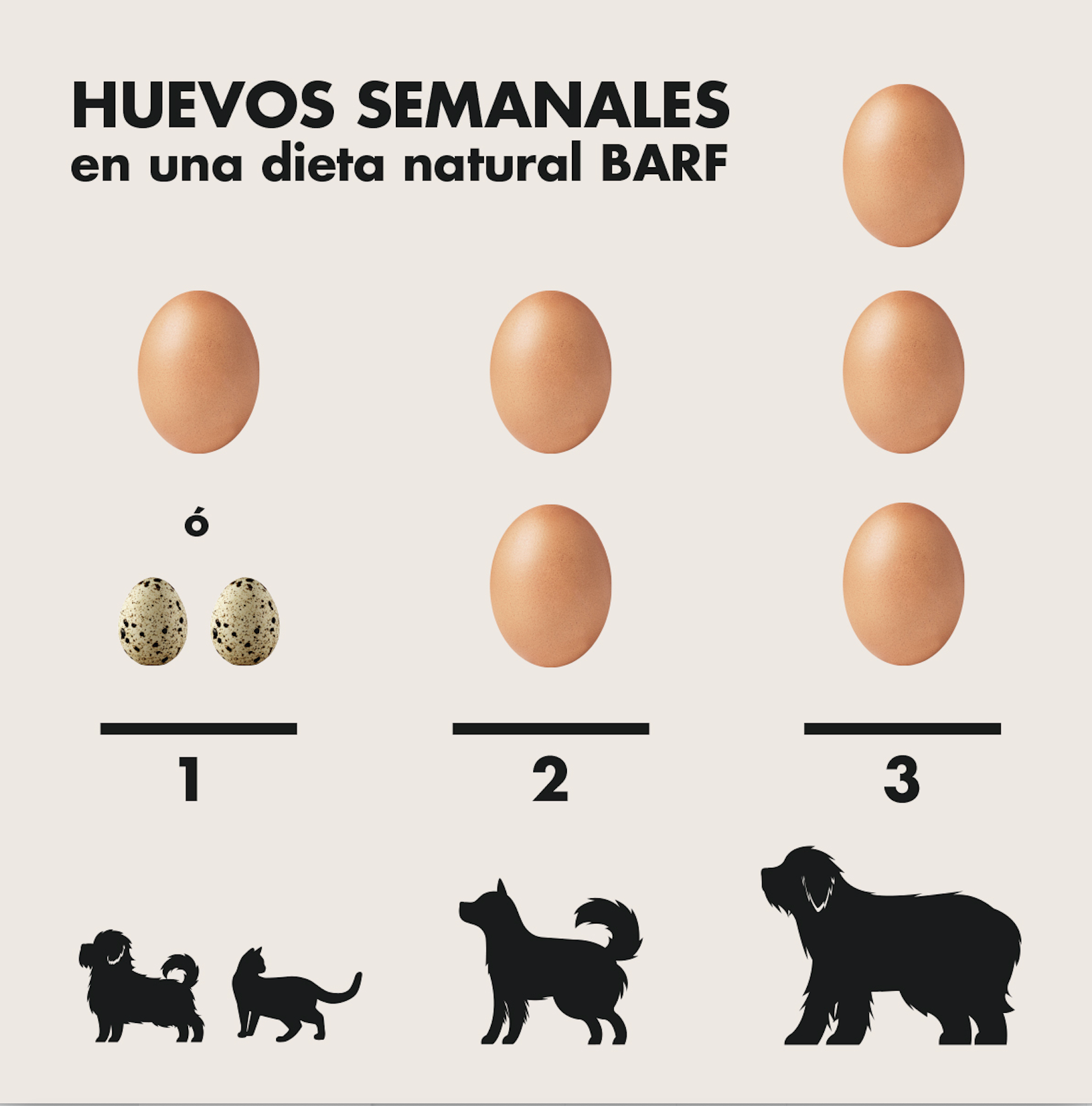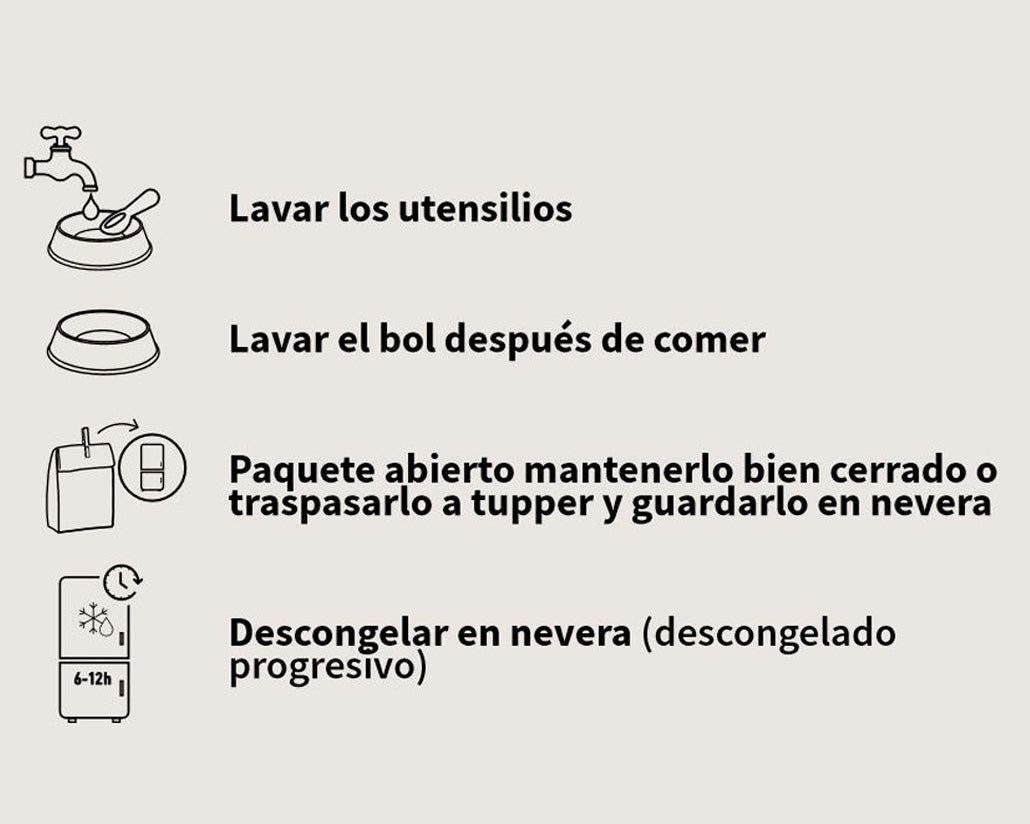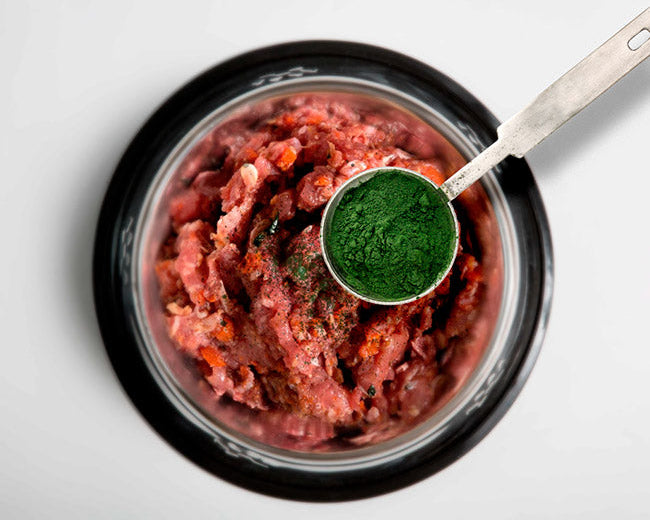Eggs are one of the most complete natural foods we can offer our dogs or cats as a supplement to their regular diet. They are an excellent source of high-quality protein, essential fatty acids, vitamins, and minerals , and can significantly boost their overall health. They are very beneficial for improving the condition of their coat and skin, contributing to muscle development, and supporting the immune system. Furthermore, they are highly digestible, making them well tolerated by most animals.
Despite all these benefits, there is still some controversy surrounding its consumption, and especially its raw nature. Many doubts revolve around whether raw eggs are safe, whether they can cause digestive problems, or whether they decrease the absorption of certain nutrients. But the truth is that, when offered correctly and with common sense, raw eggs can be part of a healthy natural diet.
In fact, you can offer not only the whole egg, but also the eggshell , which is a very useful natural source of calcium for animals that don't eat meaty bones. Below, I'll explain in more detail when, how much, and how to give eggs—don't miss it!
When is it especially advisable to give eggs?
Supplementing your furry friend's diet with eggs can be especially beneficial at certain life stages or in specific situations where their nutritional needs increase. For example, it's an excellent aid for nursing or pregnant dogs and cats , as they need an extra supply of protein and nutrients to stay strong and care for their babies. It's also ideal for puppies three months and older , when they are in the midst of muscle development and growth.
For older dogs with good immune health , eggs can serve as a gentle, natural booster to maintain their vitality. And if your companion is a very active dog or even a canine athlete , the protein in eggs will help them regain energy and maintain their muscle mass.
Incorporating this food occasionally can make a big difference to your well-being, as long as it's done in a controlled manner and tailored to your individual needs.
How much egg can I give my dog?
Although it's a healthy food full of benefits, it's important not to overdo it . As with any dietary supplement or complement, balance is key. Eggs should be considered an occasional addition to an already complete diet, not a substitute for other essential ingredients.
Each furry friend has their own unique needs, depending on their size, activity level, age, and health status. To give you a clear idea, here's a general guideline:
-
Small dogs or cats : 1 egg per week or 2 quail eggs
-
Medium dogs : 2 eggs per week
-
Large dogs : 3 eggs per week
Remember: our BARF meals are already complete and balanced, so there's no need to add supplements. But eggs can be a healthy addition.

Common myths about raw eggs and dogs
There are many health benefits to regularly consuming eggs, however, myths surrounding raw egg consumption often haunt us. One of them is that consuming raw eggs causes a protein called avidin to reduce biotin absorption. This is not true, as there is an excess of biotin in eggs, which counteracts the action of avidin, so there's nothing to worry about!
Others question the link between raw eggs and salmonella. A naturally fed dog or cat has a stomach full of good bacteria along with a very acidic pH, making this a non-issue for them.
Of course, we must be careful not to overdo it, so we'll simply explain how much egg you can give your furry friend per week, based on his or her size.
Tips for offering eggs
What if my dog doesn't want to eat the raw egg?
You can try lightly boiling it or pan-frying it , as some dogs and cats prefer the cooked texture to that of a raw egg. Before doing this, we recommend doing a simple first test: add a little raw egg to a corner of the plate, separate from the rest of the food. This way, you can see if your dog is interested without it affecting the rest of the food or mixing flavors.
If you find that your pet isn't interested or refuses to eat it, you can cook it lightly. You can try a hard-boiled egg, a soft-boiled egg, or even an omelet without added salt or oil. Cooking it intensifies the aroma, which can make it more appealing to finicky animals or those unused to the texture of raw eggs. Remember to let it cool before offering it and observe its reaction: each animal has its own tastes.
And what about the eggshell?
If your dog doesn't eat raw or homemade BARF, it's likely they're not consuming meaty bones . In this case, we recommend adding eggshells for extra calcium and minerals.
How to prepare it? Be careful, pay attention!
-
Use only organic eggs from safe sources
-
Wash the shell well
-
Dry it and grind it into a fine powder with a mortar and pestle or grind it together with the egg with a hand blender.
This way you will facilitate the absorption of calcium and other minerals.
Eggs are a natural, simple, and inexpensive superfood. A small improvement that can have a big impact on your furry friend's health. Are you up for trying it?
Do you prepare a natural homemade diet without meaty bones?
In this case, you absolutely must supplement with calcium. This is essential for your furry friend's mineral balance and bone health. Our Eggshell supplement is ideal for this. You can contact us with any questions about how to use this supplement.


